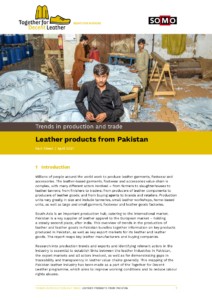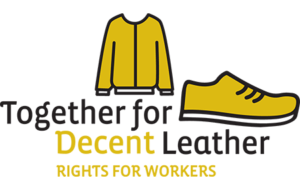Saeeda is a 28-year-old former glove factory worker. She lives in Orangi Town, a large slum in the north-western part of Karachi, with her husband, two children, her parents-in-law and three sisters-in-law. Before the coronavirus pandemic, Saeeda earned a small income from working at the factory, checking and packing finished gloves. Saeeda and her family found themselves in a desperate situation when she lost her job due to the crisis. They received very little support, had to borrow money and were left with considerable debts.
Saeeda’s factory
When the pandemic hit, Saeeda’s factory did not close at first, despite the officially proclaimed lockdown in Pakistan. The owner of the glove factory tried to keep production going. Only when the Punjabi state government announced that factory owners would be strictly persecuted for not respecting lockdown rules did the factory shut down. Saeeda and her co-workers were instructed to go home and told that they would be called back to work when the factory opened again. Despite the management’s promises, Saeeda never heard from her employer again.
No contract, no rights
As is often the case in the garment industry, Saeeda did not have an employment contract. When she started working at the glove factory, she was simply given a card to gain entrance to the factory’s compound and a piece of paper indicating her hours of work and payment. No signed contract. No payslips. No formal documentation that she could use to claim her rights and retain her job.
No back pay
When garment factories closed in March 2020, many workers had not yet received their pay for that month. Saeedea was lucky to the extent that she at least got paid for the work she did up until the moment her factory shut down. However, Saeeda and her co-workers were not paid anything in the period that the factory was closed, nor did her employer consider the lockdown as paid leave. Saeeda has given up hope that she will ever receive her due back pay.
Women workers suffered most
After two months of lockdown, the glove factory reopened. Saeeda’s employer did not inform her directly, she only found out by chance. Former colleagues mentioned that the glove factory was short on orders, production had slowed down and less workers were needed. Saeeda was not the only one to abruptly lose her job, many of her co-workers were also dismissed. Saeeda noticed that women in their thirties and forties and elderly male workers were overrepresented among those dismissed. For Saeeda this came as no surprise; she describes how women workers are facing discrimination on the work floor. Compared to their male co-workers, women receive less pay and have less opportunities for training and promotion. Women workers also experience degrading treatment and sexual harassment.
No support
The Pakistan government promised to financially support deprived workers, but although they tried to access the promised funds, Saeeda and her family did not receive any money. Political parties, as part of their campaigning, distributed ration kits with non-perishable, dry foodstuffs. Saeeda and her family did receive this aid, but the package did not last long and was not enough by far to feed the whole household for the period of deprivation.
No future?
The pandemic left Saeeda and her family in a very bad situation. When Saeeda’s husband also lost his job as a driver, the extended family had to make do with a decimated income. With the low wage she had been earning, around 14,000 INR (74 EUR) per month, Saeeda did not have any financial savings. Food became scarce in the household, particularly affecting the children’s health and strength. Saeeda was forced to borrow money from family and friends. What she needs most is to get her job back.
Corona in Pakistan
The coronavirus pandemic has had a devastating effect on the Pakistan textile and footwear sector. In 2020, the imports of raw materials, including processed hides and chemicals needed for tanning, were interrupted affecting production. Exports subsequently fell. Spain, France and Italy are important export destinations for Pakistan’s leather-based garment industry. When the pandemic hit Europe at the beginning of 2020, borders closed, international transport came to a standstill and retail shops shut. Orders from international brands were suspended. At the end of March 2020, Pakistan was put under a first nation-wide lockdown, causing a wave of factory closures, initially until the end of May and then again later in the year.
In April 2021, coronavirus infection rates surged for a third time in Pakistan. To curb the spread, lockdowns were again enforced, with some regional and sectoral modifications. In Sindh province, for example, offices and businesses had to close. In other regions factories were kept open. In early May 2021, the Employers’ Association of Pakistan (EFP) announced that they expected a loss of 15-20% of jobs in the industrial sector. This translates into millions of workers losing their income. EPF’s former president added that around 99% of textile processing industries in the industrial area of Karachi halved their production time from 24 hours per day to 12 hours per day.
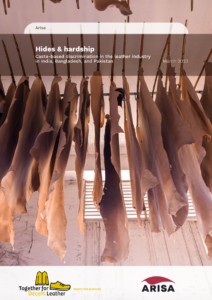

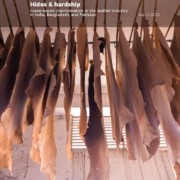
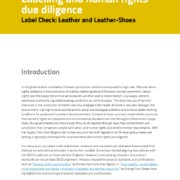 INKOTA/Südwind Austria
INKOTA/Südwind Austria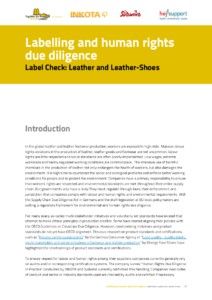
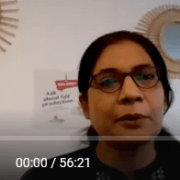
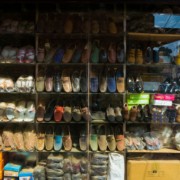 SOMO
SOMO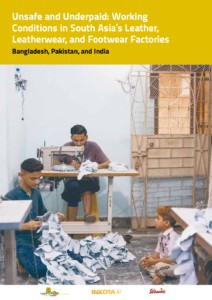
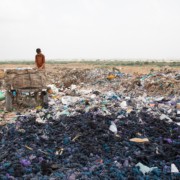 Insiya Syed
Insiya Syed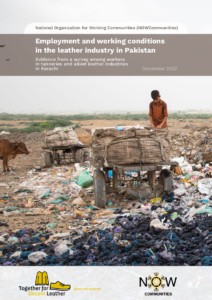
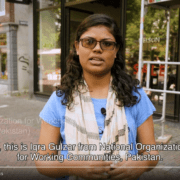
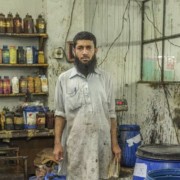
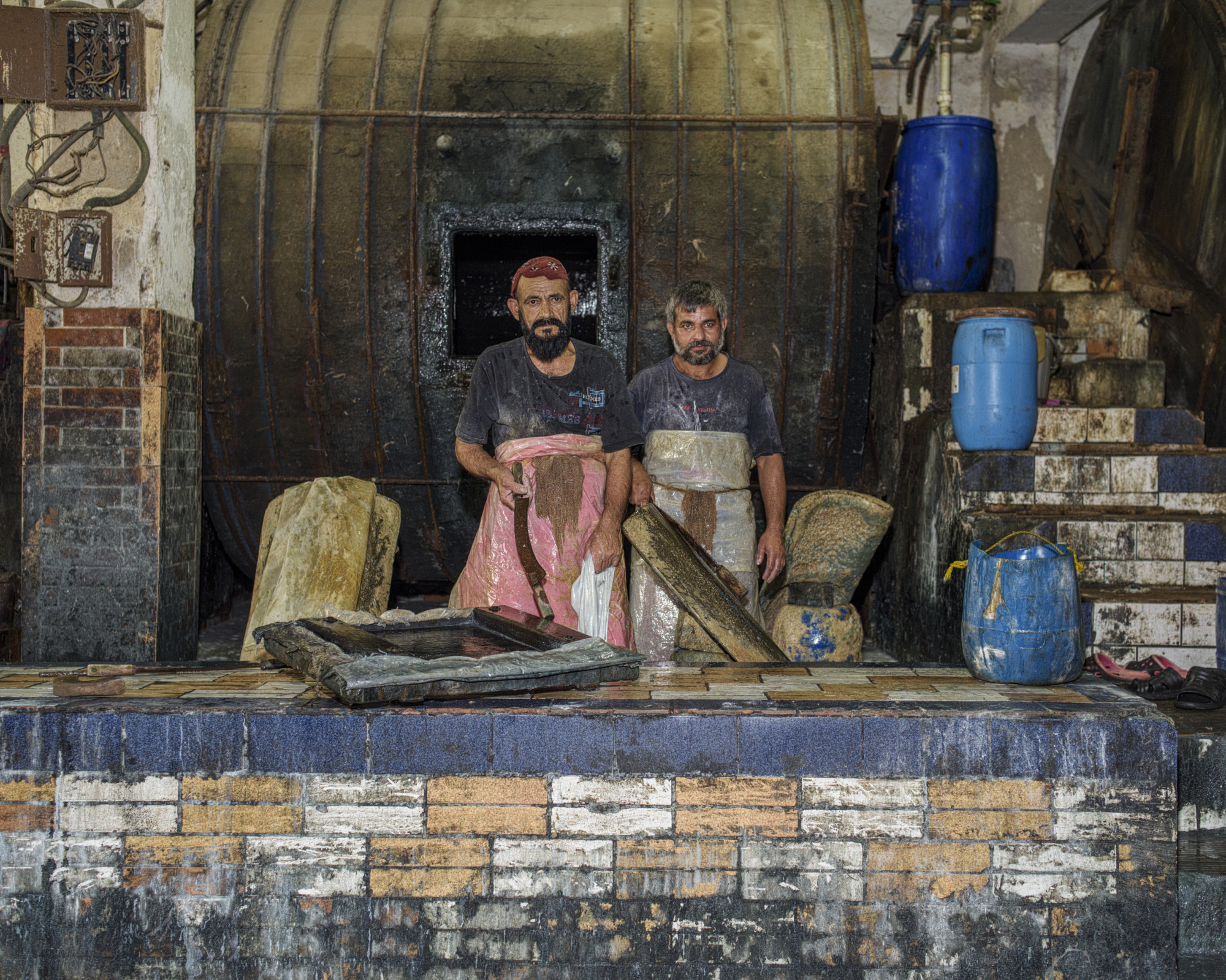 Asim Rafiqui | NOOR Images
Asim Rafiqui | NOOR Images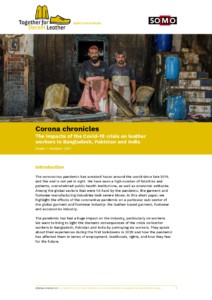
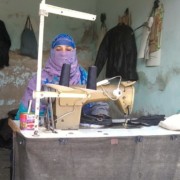 NOW Communities
NOW Communities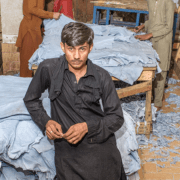 © Asim Rafiqui
© Asim Rafiqui